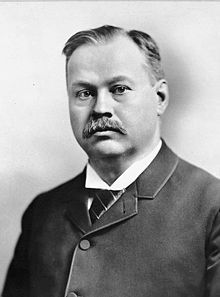Royal Society of Canada
| Abbreviation | RSC |
|---|---|
| Formation | 1882 |
| Type | Organizations based in Canada with royal patronage |
| Legal status | active |
| Purpose | advocate and public voice, educator and network |
| Headquarters | Ottawa, Ontario, Canada |
Region served | Canada |
Official language | English, French |
| Affiliations | Royal Society of London and the Institut de France |
The Royal Society of Canada (Société royale du Canada), now known as the RSC: Academies of Arts, Humanities and Sciences of Canada (SRC: Académies des Arts, des Lettres et des Sciences du Canada), is the oldest association of scientists and scholars in Canada. The RSC is dedicated to encouraging education and the advancement of knowledge in the natural and social sciences and the humanities. It holds an annual conference together with other scholarly groups as part of the Congress of the Canadian Federation for the Humanities and Social Sciences (the "Learneds").
History

The Society was founded in 1882 by the Marquis of Lorne, who was then Governor General of Canada. Succeeding governors general have served as patrons of the Society. The founding members included Sir Sandford Fleming, the originator of the world system of Standard Time, and Sir William Osler, one of the great physicians of the century. The original Society was subsequently incorporated by an act of Parliament and granted its Royal Charter in 1883. Alan Beddoe designed the arms for the Royal Society of Canada and his fonds includes black and white photographs of the letters patent.[1]
Organization and purpose
The Royal Society of London and the Institut de France were the models for the Society. The Society today consists of approximately 1,800 Fellows: men and women from across Canada who are selected by their peers on account of their outstanding contributions to the arts and sciences. The President of the Society serves on the Governor General's advisory council on appointments to the Order of Canada.
The Society is composed of three Academies:
- The Academy of Arts and Humanities (Academy I)
- The Academy of Social Sciences (Academy II)
- The Academy of Science (Academy III).
The Society is dedicated to making its members' broad and varied knowledge available to the public and to evaluate and advise on social, cultural, economic and scientific issues for the benefit of Canada. The members are available to assess issues of value to Canadians and provide independent expert advice, notably to government, on matters of public policy through its program of Expert Panel reports. Its purpose also includes fostering the highest levels of learning and research in all areas of scholarship and recognizing outstanding achievements in research and innovation by electing new Fellows and by awarding medals and prizes. The Society actively promotes international collaboration with other national academies. Discussion and consideration of important topics are carried out by the organization of annual symposia.
Awards
The Society awards twenty different awards on an annual or biennial basis. Some of these include:
- Bancroft Award, for publication, instruction, and research in the earth sciences
- Pierre Chauveau Medal, for a distinguished contribution to knowledge in the humanities
- Sir John William Dawson Medal, for important and sustained contributions in at least two different domains
- Thomas W. Eadie Medal, for contributions in engineering and applied science
- Flavelle Medal, for an outstanding contribution to biological science
- Willet G. Miller Medal, for outstanding research in any branch of earth sciences
- Lorne Pierce Medal, for an achievement in critical or imaginative literature
- Henry Marshall Tory Medal, for outstanding research in a branch of astronomy, chemistry, mathematics, physics, or an allied science
- J.B. Tyrrell Historical Medal, for outstanding work in the history of Canada
Fellowship
Election to Fellowship in the Society is the highest academic accolade available to scientists and scholars in Canada. After their induction in the Society, Fellows may use the postnomial FRSC for Fellow of the Royal Society of Canada. Francophone Fellows use MSRC for Membre de la Société royale du Canada. The postnomial is usually not translated but is kept in the language of the Fellow.
See also
- List of presidents of the Royal Society of Canada
- List of Canadian organizations with royal patronage
- Council of Canadian Academies, an umbrella organization including contributions from the Royal Society
References
External links
- List of Civilian organizations with prefix "Royal" - Heritage Canada.
- List of civilian organizations with the prefix "Royal" prepared by the Department of Canadian Heritage
- Royal Society of Canada.
